News
Obey ECOWAS Judgement, SERAP Tells Buhari
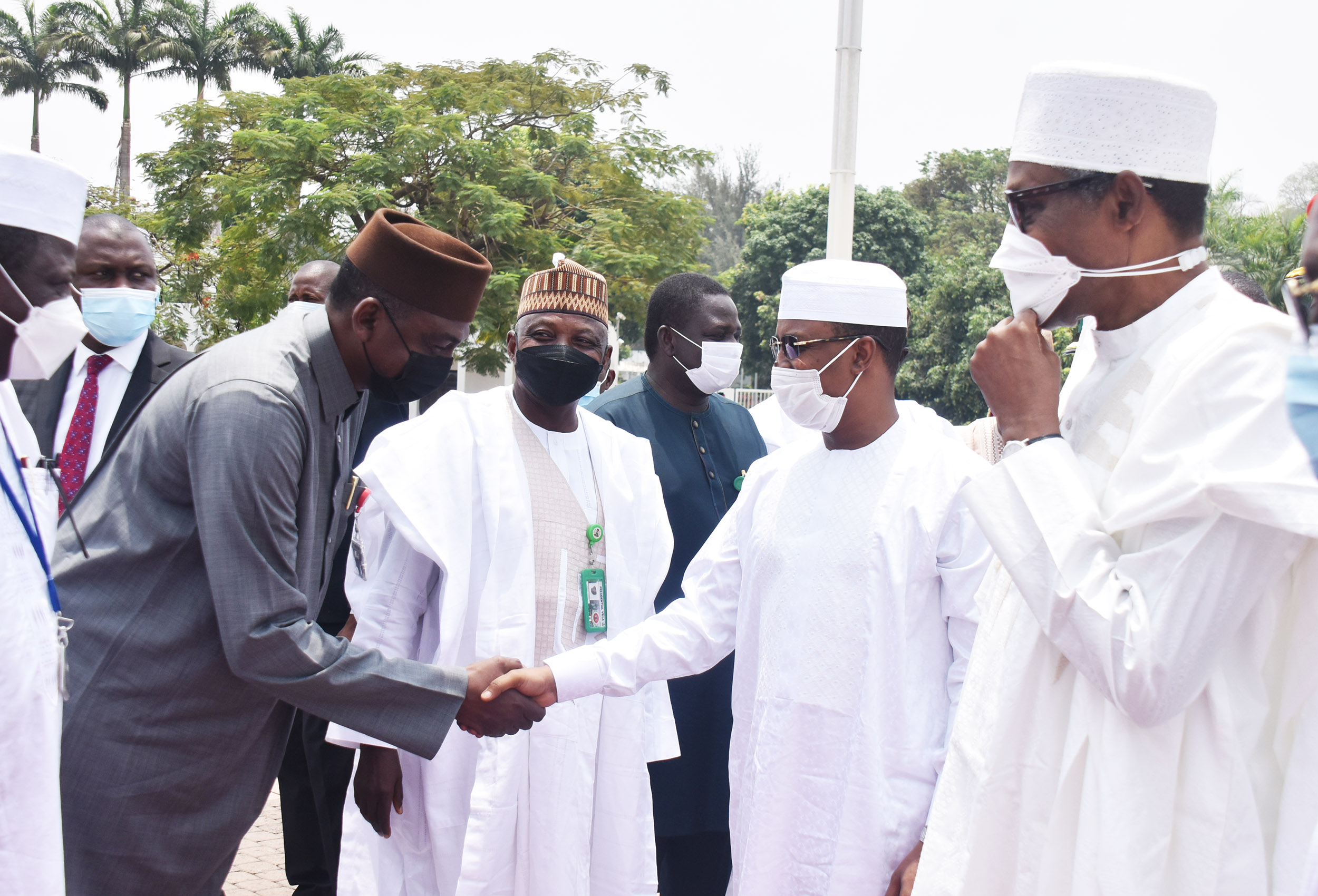
Socio-Economic Rights and Accountability Project (SERAP) has urged President Muhammadu Buhari to “enforce the judgement by the ECOWAS Court of Justice compelling your government to delete the offence of ‘insulting or stalking public officials online’ from the Cybercrime Act.”
SERAP urged him to “urgently send an executive bill to the National Assembly to repeal the unlawful provisions, and reform all laws, which are inconsistent and incompatible with freedom of expression and media freedom.”
The judgement, delivered by the court last week in Accra, Ghana followed the suit number ECW/CCJ/APP/09/19 brought by SERAP.
SERAP also urged him to “direct the Attorney General of the Federation and Minister of Justice,Mr Abubakar Malami, SAN to withdraw all pending charges of ‘insulting or stalking public officials online’ against activists, critics and journalists, and immediately ensure their release from unlawful detention.”
SERAP urged him to ensure that “those who have faced unfair prosecutions under the unlawful provisions receive adequate compensation.”
In the open letter dated April 2, 2022, and signed by SERAP Deputy Director, Kolawole Oluwadare, the organisation said, “This judgement is a victory for many Nigerians who continue to face harassment, intimidation and unfair prosecutions solely for peacefully exercising their human rights online.”
The provisions of Section 24 of the Cybercrime Act, among others, criminalise sending or causing to be sent an “offensive, insulting or annoying message via a computer system or network.”
The offence is punishable, including by a fine of up to N7,000,000.00 or imprisonment of up to three years or both.
SERAP had argued before the ECOWAS Court that, “The Federal Government and several state governments have used the vaguely worded provisions of the Cybercrime Act to trample on the rights to freedom of expression and information of bloggers, journalists, activists, and social media users.”
In its judgement, the court agreed, and ruled that “Section 24 of Cybercrime Act is inconsistent and incompatible with Article 9 of the African Charter on Human and Peoples’ Rights and Article 19 of the International Covenant on Civil and Political Rights to which Nigeria is a state party.”
The court then ordered the Federal Government to “amend section 24 of the Cybercrime Prohibition Act in accordance with Nigerian obligations under Article 1 of the African Charter on Human and Peoples’ Rights.”
The letter, read in part: “The immediate enforcement and implementation of the judgement by your government will be a victory for the rule of law, the right to freedom of expression and media freedom online. This will improve citizens’ participation in their own government, and provide an impetus for the anti-corruption fight.
“By implementing the judgement, your government will be demonstrating Nigeria’s leadership within the ECOWAS sub-region, and sending a powerful message to other countries to embrace the rule of law and human rights.
“With the ECOWAS Court judgement, all federal and state authorities must now stop using the provisions of section 24 of the Cybercrime Act to target, harass, intimidate, arbitrarily arrest and detain and unfairly prosecute social media users, activists, and journalists who express views perceived to be critical of governments.
“SERAP notes that Article 15(4) of the ECOWAS Treaty makes the Judgement of the Court binding on Member States, including Nigeria. Also, Article 19(2) of the 1991 Protocol provides that the decisions of the court shall be final and immediately enforceable.
“Furthermore, non-compliance with the judgement of the court can be sanctioned under Article 24 of the Supplementary Protocol of the ECOWAS Court of Justice, and Article 77 of the ECOWAS Treaty.
“SERAP trusts that you will see compliance with this judgement as a central aspect of the rule of law; an essential stepping stone to constructing a basic institutional framework for legality, constitutionality. We, therefore, look forward to your positive response and action on the judgement.
“The judgement read by Hon. Justice Gberi-De Quattara (presiding judge), Hon. Justice Dupe Atoki (member) and Hon. Justice Keikura Bangura (member), chronicled details of Nigerian government officials using the Cybercrime Act, particularly its Section 24 as a pretext to harass, intimidate, detain, prosecute and imprison activists, journalists, bloggers, and social media users.
“In its judgement, the ECOWAS Court held that ‘The court has the jurisdiction to hear and determine the suit. In a plethora of decisions, the court has upheld that the mere allegation of human rights violations is sufficient to invoke this human rights mandate pursuant to Article 9 (4) of the Supplementary Protocol.’
“In view of the fact that this application is premised on human rights violations pursuant to Article 9(4) of the supplementary protocol, the court holds that it has jurisdiction to hear and determine the suit.
“According to the ECOWAS Court, ‘The allegation of SERAP before the Court for determination on merit is whether the provision of the Cybercrime Act has violated the right to freedom of expression, information, opinion, and privacy in contravention of Article 9(1) and (2) of the African Charter on Human and Peoples’ Rights and Article 19 of the International Convention on Civil and Political Rights.’
“The ECOWAS Court then stated that, ‘Section 24 of the Cybercrime Act is not in conformity with Article 9 of the African Charter and Article 19 of the International Convention on Civil and Political Rights. As for reparation, Nigerian Government is ordered to amend Section 24 of the Cybercrime Act, in accordance with the obligations under Article 1 of the African Charter of Human and Peoples’ Rights.’
“SERAP also notes that by virtue of Article 24(4) of the Protocol A/P.1/7/91 relating to the ECOWAS Community Court of Justice as amended by the Supplementary Protocol A/SP.1/01/05 in January, 2005, every member state of the Economic Community of West African States is required to designate a National Authority for the enforcement of the judgements of the Community Court of Justice.”
“Pursuant to the provisions of the article 24 of the Protocol of the Community Court, the Federal Government decided in 2014 to designate the office of the Attorney-General of the Federation and Minister of Justice as the Competent National Authority for the enforcement of the decisions of the court in Nigeria.”
The letter was copied to Mr Malami.
News
May Day: Labour Seeks Inclusiveness In Policy-making
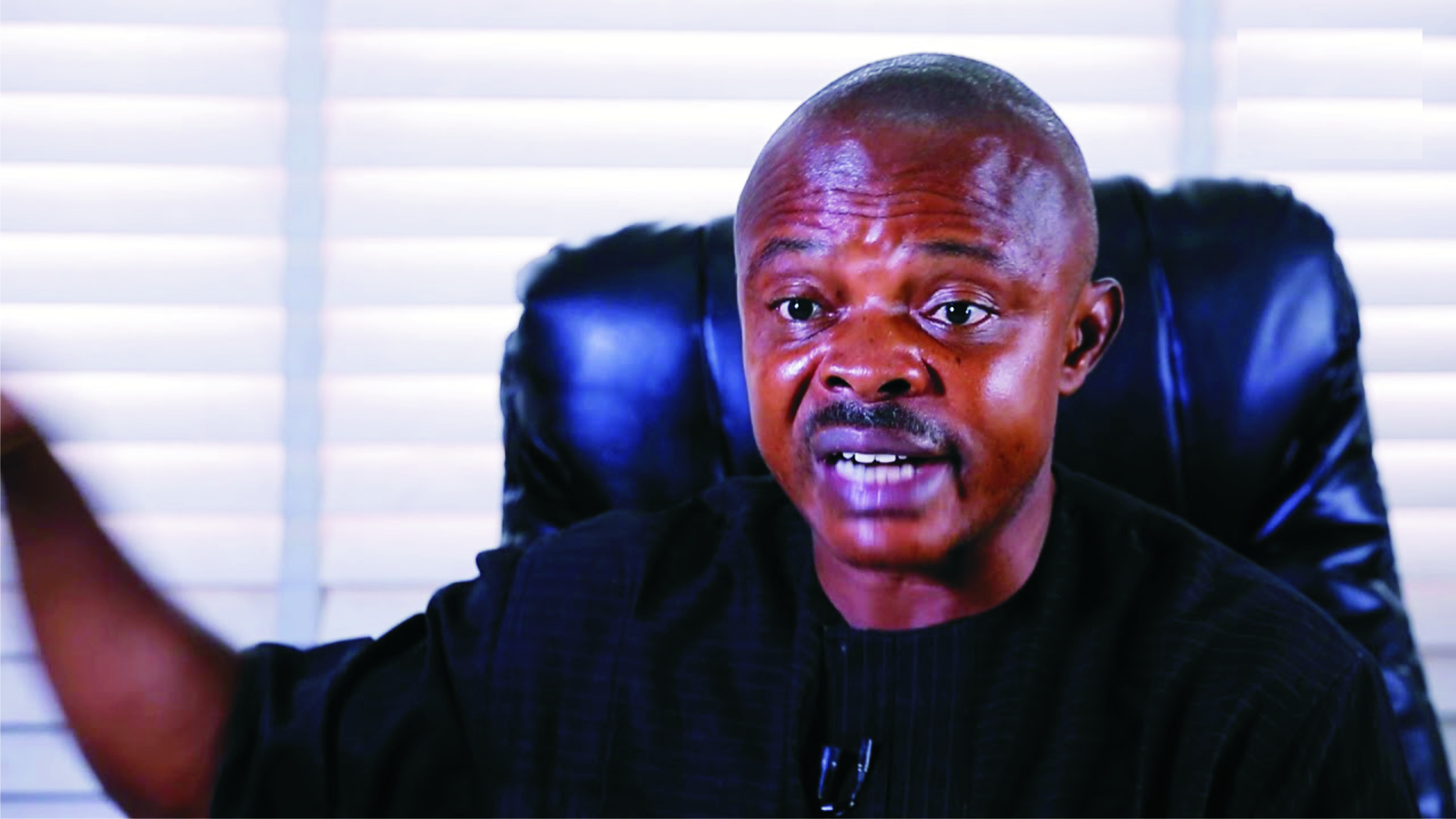
The Organised Labour yesterday, called on the Federal Government to ensure inclusiveness in policy making and guide against erosion of rights, such as free speech and association.
The President, Nigeria Labour Congress (NLC), Mr Joe Ajaero made the call at the 2025 Workers’ Day celebration held at the Eagle’s Square, Abuja.
The Tide source reports Ajaero and the President, Trade Union Congress, Mr Festus Osifo delivered a joint statement on behalf of the organised labour at the event.
Ajaero described May Day as, not only a moment to honour workers’ sacrifices, but also a platform to demand justice and accountability from those in public office.
He frowned at the alleged suppression of protests, and the erosion of rights of workers by some agents
According to him, workers have a duty to resist economic injustice, insecurity, and policies that undermine their dignity.
Speaking on the theme of the day, the NLC President underscored the need for Nigerian workers to reclaim the civic space and resist policies that contribute to worsening economic conditions.
“Our theme this year – “Reclaiming the Civic Space in the midst of Economic Hardship – reflects the urgent need for citizens to protect democracy and push back against repression.
“The civic space, where Nigerians express their concerns and challenge injustices is shrinking.
“If we fail to reclaim this space, the foundation of our democracy risks collapse,” he said
Ajaero, therefore, urged workers to unite and resist division, fear, and despair.
He also urged them to mobilise and organise for change, declaring that the right to demand better conditions is non-negotiable.
“Without workers, there is no society; without labour, there is no development. We must take our place in the fight for economic justice and democratic governance.”
Speaking in the same veins, Osifo said workers are the backbone of the nation—the educators, healthcare providers, builders, farmers, and innovators who sustain its economy -.
He stressed the need for the labour to reclaim the civic space even in the midst of economic hardship.
News
2025 UTME: JAMB Disowns Site Requesting Payment From Candidates

The Joint Admissions and Matriculation Board (JAMB) has disassociated itself from a fraudulent site requesting payments from candidates who missed the ongoing 2025 Unified Tertiary Matriculation Examination (UTME).
The board said that the site, “Copyrightwriter Personal J Rescheduling Flw” and account number 8520641017 at Sterling Bank, associated with it, are scam.
The disclaimer is contained in a statement made available to newsmen in Abuja on Thursday by the Board’s Public Communication Advisor, Dr Fabian Benjamin.
Benjamin said the account is being exploited to defraud unsuspecting candidates who missed their UTME.
“We issue this urgent notice to inform the public about this nefarious scheme targeting candidates who were unable to participate in the UTME.
“Some unscrupulous individuals are deceitfully soliciting payments of N15,700 under the false pretence of offering rescheduling services for the examination.
“Let us be unequivocal: this, it is a blatant scam, and we are confident that the public will not fall prey to such cheap and regressive tactics.
” The individuals behind this scam have no affiliation with JAMB or any legitimate government agency.
“The account details provided in these communications are entirely fictitious and bear no connection to any official processes; they exist solely for the purpose of perpetrating fraud,” he said.
Benjamin called on Sterling bank to take immediate and decisive action against this criminal activity.
According to him, JAMB has reported the matter to the relevant security agencies and actively pursuing those responsible for this deceitful act.
He further said that “JAMB does not reschedule examinations for candidates who miss their scheduled tests due to reasons unrelated to the Board’s actions”.
He, however, said that the Board is conducting a thorough investigation for candidates whose biometrics failed during verification and were thus unable to sit for the examination.
He said those without discrepancies would be invited to retake the examination at no cost , stressing that “no cost is required”
“It is imperative to understand that JAMB does not charge any fees for examinations after a candidate has completed their registration.
“We strongly urge all candidates to remain vigilant and not to succumb to these fraudulent schemes.
“Protect yourselves and report any suspicious activity immediately,” he explained.
News
NDDC Seeks UN’s Support To Accelerate Niger Delta Development
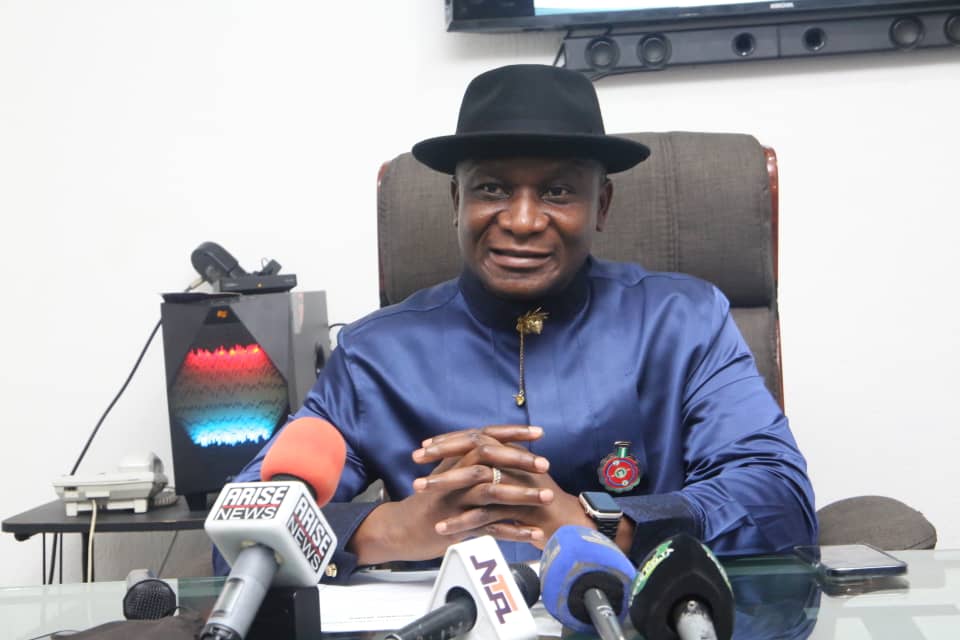
The Niger Delta Development Commission (NDDC) has expressed its willingness to partner with the United Nations (UN) to accelerate the development of the Niger Delta region.
Dr Samual Ogbuku, Managing Director of the NDDC, made the appeal in a statement issued by the commission’s Director of Corporate Affairs, Mrs Seledi Thompson-Wakama, in Port Harcourt on yesterday.
According to the statement, Ogbuku sought the UN’s support during his visit to the UN Resident and Humanitarian Coordinator (UNRHC), Mr Mohammed Fall, at the UN regional office in Abuja.
He called on the global body to provide the NDDC with technical assistance and expert services to support the region’s development.
“We are eager to collaborate with the UN, recognising that the state governments in the region and the NDDC alone cannot achieve the level of regional development required,” he said.
Ogbuku identified key areas where support would be needed, including the provision of portable and affordable drinking water powered by high-tech solar energy sources.
He also highlighted the importance of reforesting the mangrove swamps, which have been severely damaged by decades of environmental degradation caused by oil exploration in the Niger Delta.
“Although the NDDC has made progress in providing solar-powered streetlights across the region, we still require UN support in delivering solar energy solutions for residential buildings.
“We also wish to explore the possibility of installing solar mini-grids in homes across communities, which would boost local commerce and trade,” he added.
The NDDC managing director further appealed for increased UN involvement in areas such as healthcare, education, youth training, gender development, and food security.
Ogunku stated that such interventions would significantly enhance the standard of living in the region.
In response, Fall affirmed the UN’s readiness to collaborate with the NDDC to fast track development in the Niger Delta.
He assured that the UN would support initiatives in food security, job creation, education, and renewable energy, among other areas.
“We aim to approach development in the Niger Delta holistically, rather than focusing solely on environmental pollution.
“This is merely an entry point; however, the UN’s development vision aligns with the Sustainable Development Goals (SDGs), which are designed to positively impact various aspects of people’s lives,” Fall stated.
He assured the NDDC of continued and fruitful engagements to drive the region’s development.
-
Business3 days ago
NECA Holds MSME Fair To Drive Growth
-

 News2 days ago
News2 days ago2025 UTME: JAMB Disowns Site Requesting Payment From Candidates
-

 Rivers3 days ago
Rivers3 days agoNLNG Initiates New Empowerment Scheme For Host Communities
-

 Editorial3 days ago
Editorial3 days agoMay Day: Let Nigerian Workers Breathe
-
City Crime3 days ago
Europa League Will Not Save Our Season – Man Utd
-
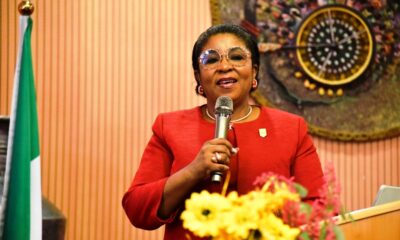
 News3 days ago
News3 days agoWalson-Jack Salutes Civil Servants’ Dedication On Workers’ Day
-
Business3 days ago
TTP Trains Customs Agents, Freight Forwarders On Eto App
-
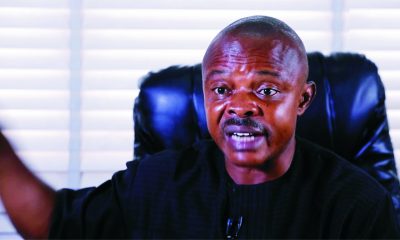
 News2 days ago
News2 days agoMay Day: Labour Seeks Inclusiveness In Policy-making

